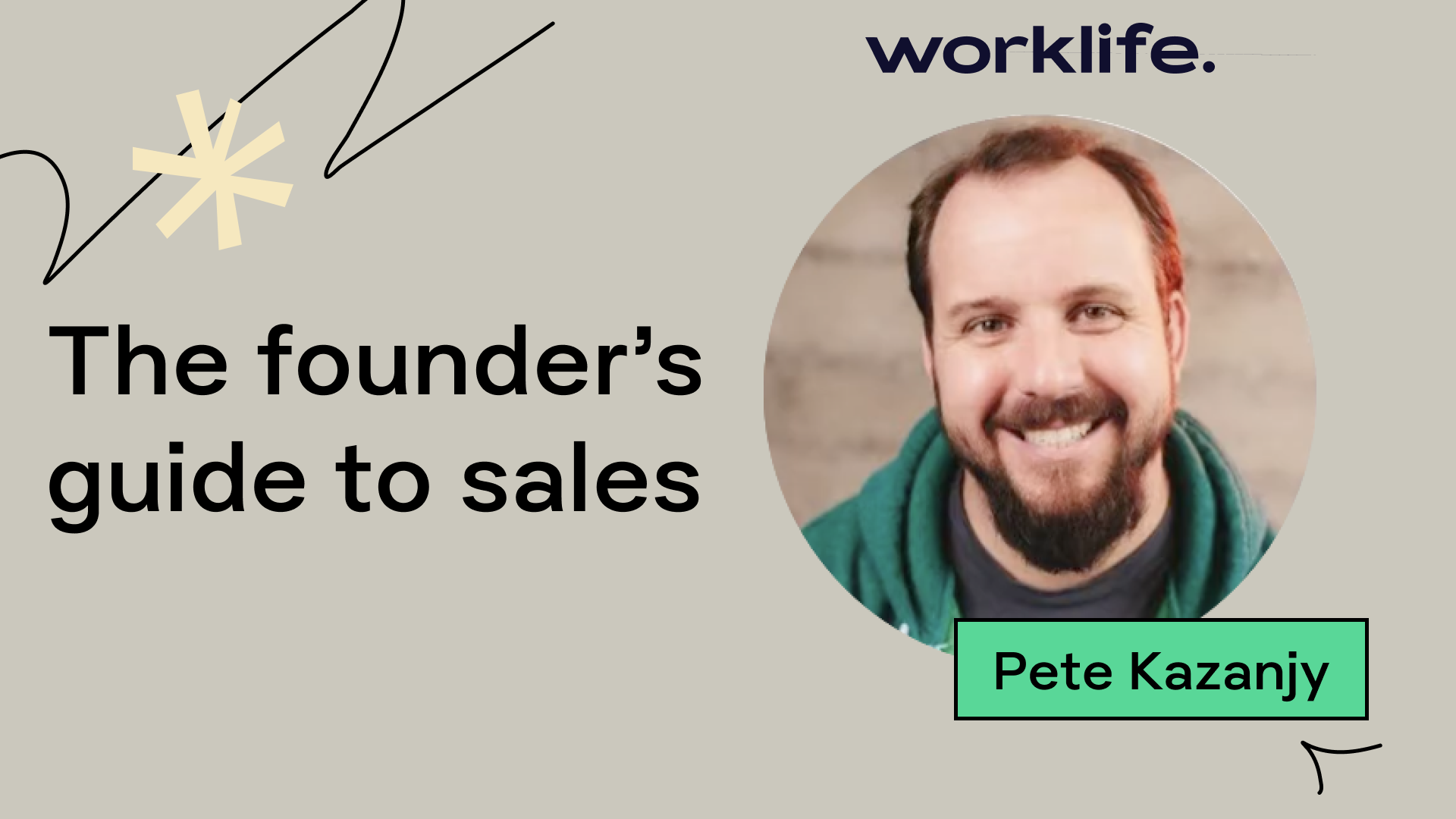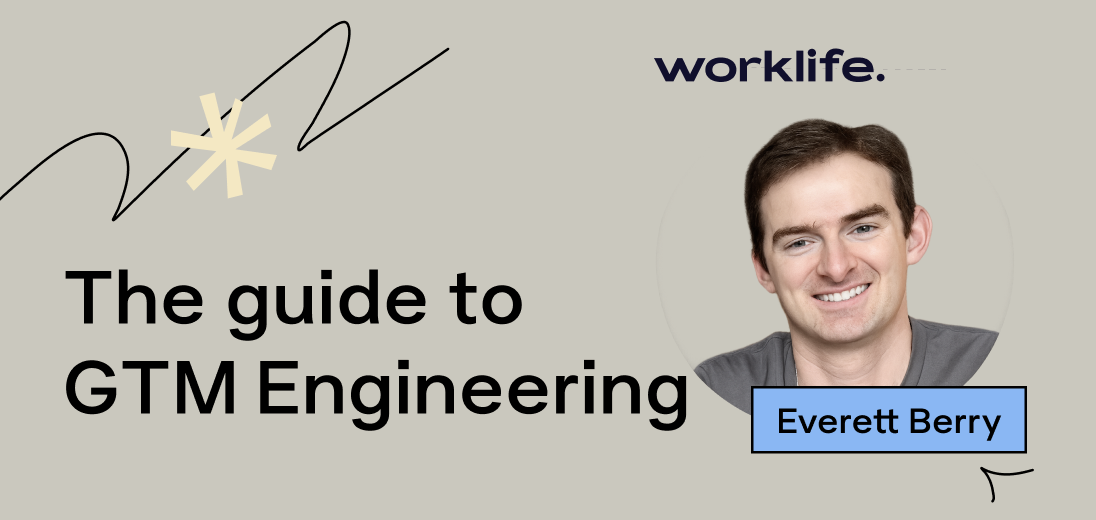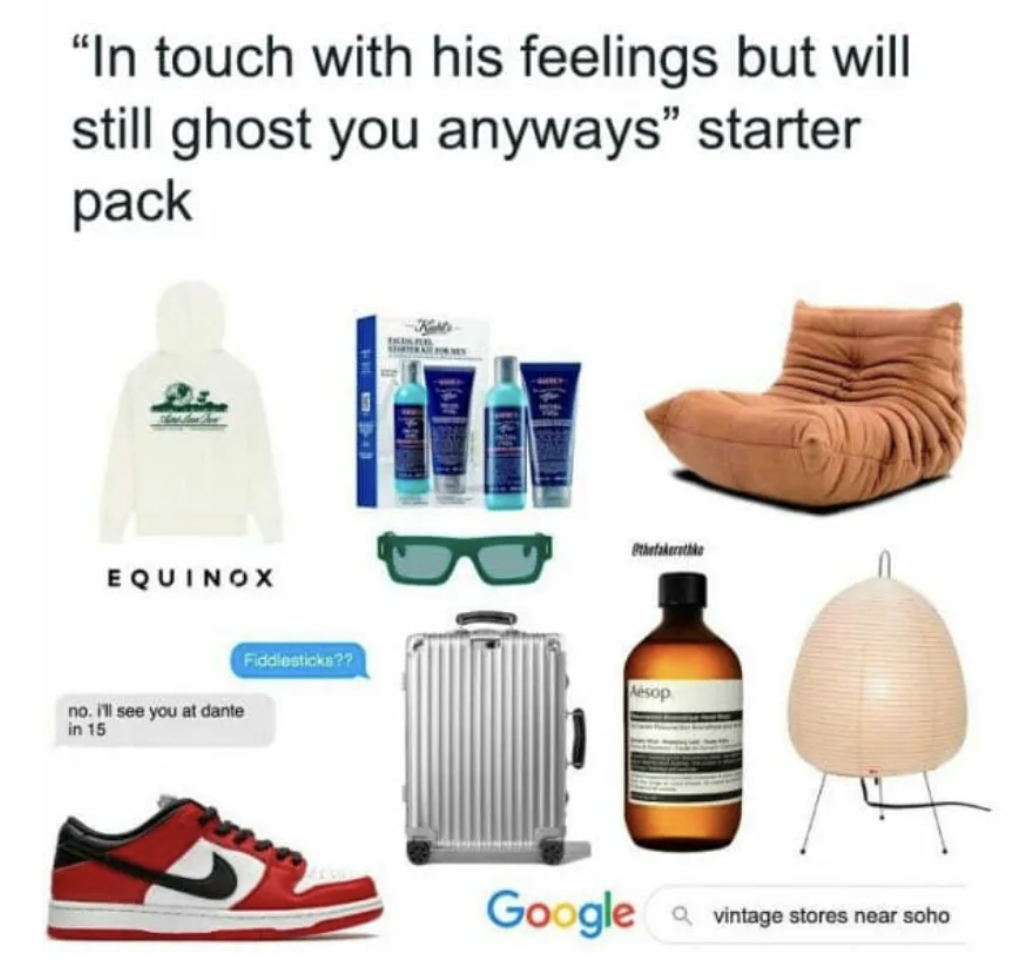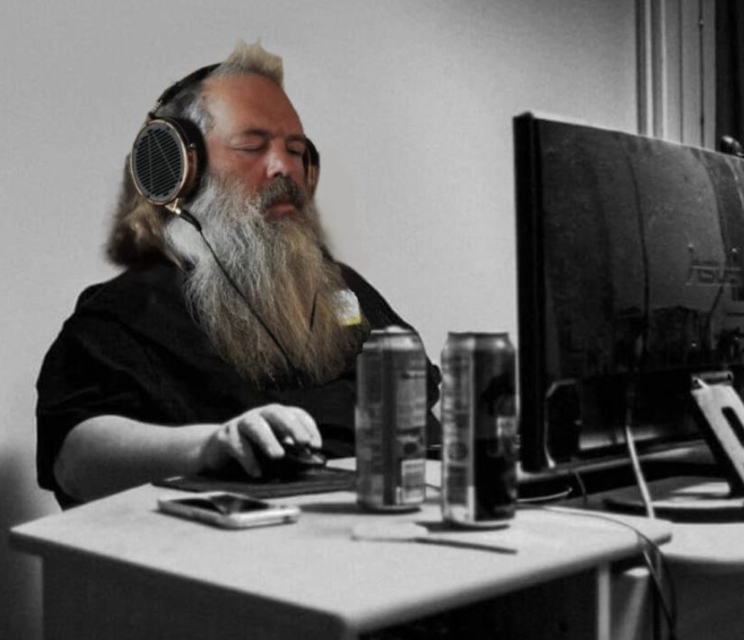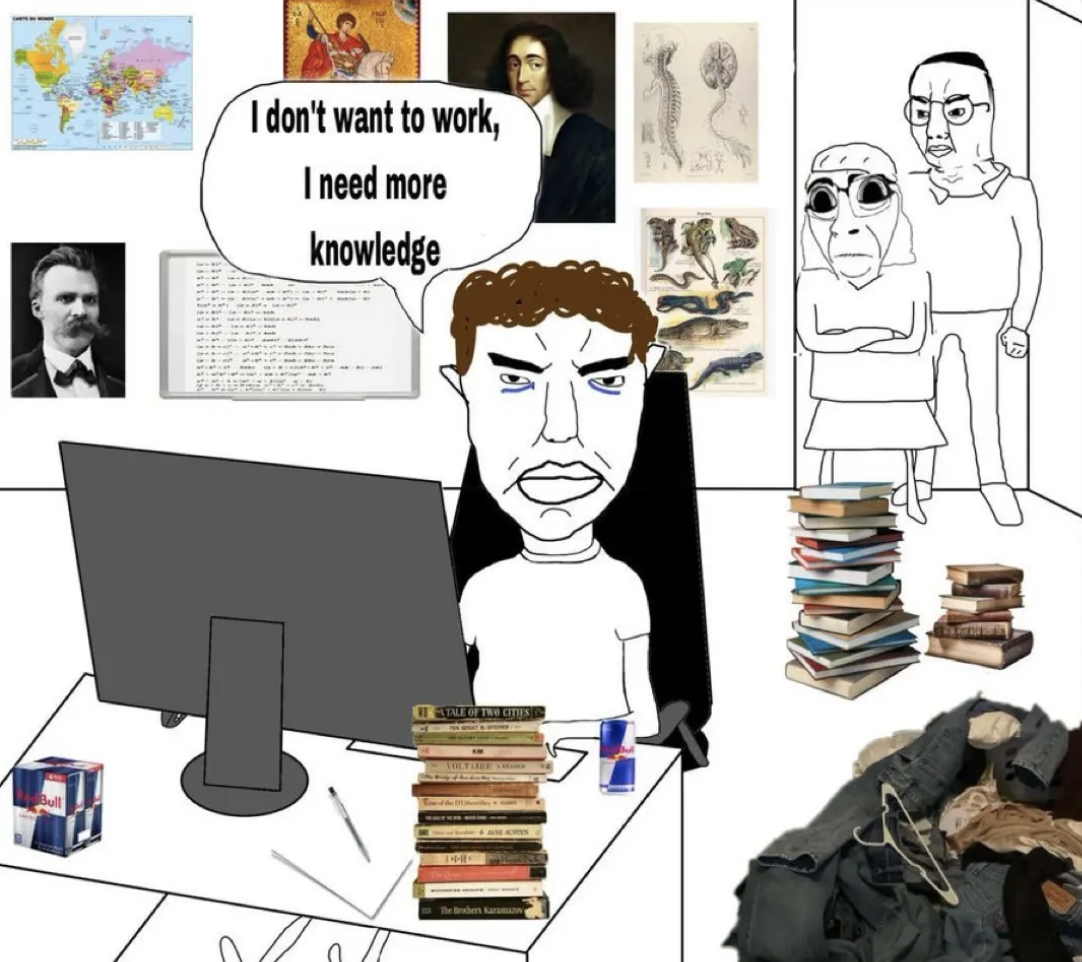On a drab winter day in Scotland, Marty Bell found himself listening to sexy poolside tunes to make himself feel better, manifesting that he was sunbathing somewhere in Los Angeles, feet in the sand. That’s when an idea clicked: why not pair his playlists with retro 80s beach clips on VHS to give people anywhere a virtual one-way ticket back to the summer of 1986?
"The first time I put these two things together I laughed so hard & couldn't stop smiling – I felt like I was having serotonin injected directly into my brain,” said Bell.
What he ended up launching, Poolside FM (now Poolsuite), came in the form of an old-school media player and a YouTube player, with just play and pause buttons. It was billed as a virtual vacation and “the sunniest place on the internet.”
Was it simple? Yes. Did the Internet devour it? Also yes.

This was Bell’s first taste of virality, but it wasn’t his last. He’s made a name for himself gaining fans for stuff he puts on the web just for fun. Since then, he’s re-launched a more robust version of Poolsuite that’s gained approximately 1 million listening sessions per year; launched Tens, Instagram-filtered sunglasses that got worldwide press; created a sister brand to Poolsuite, Vacation, which sells products in line with the retro beach vibes that have been so successful they’re now on Kith; and founded Jacuzzi Club, a buzzy private chat for people building innovative brands.
And he’s just getting started. While Bell’s spent years building his own fun-filled Internet brands on the evenings and weekends, he plans to make the jump to work on Poolsuite (and whatever his next viral hits are) full-time.
Bell is someone who falls for his projects because they give him energy and amusement, not necessarily because he wants to make serious cash. He’s avoided bringing investors into Poolsuite for that reason. But now, with new ways to fund companies like community tokens and selling NFTs, he wants to embrace the Web 3 model of community-funded projects.
The evolution of Poolsuite
Talking to Bell, it’s clear his brain operates by constantly coming up with wild ideas, and unlike a lot of people with the characteristic, he actually acts on them — very well. He knows what the Internet wants, and he creates that for the world happily. He does it not in the pursuit of wild amounts of money, but for kicks.
So how does someone with so many successful Internet brands function — how did he get started, and what’s his creative process? In the case of Poolsuite, Bell started from scratch with his simple idea for video-meets-music-meets-80s-beach-vibe, and was dogged in finding enough people hyped enough to work with him on it for free.
“In the beginning, I fucked around with some MySpace-level html and realized I didn’t know what I was doing,” he said. “I needed a developer, and in 2014, I knew like one - which is hilarious because now everyone I know is a developer.”
Out of options, he posted on Reddit to find someone, selling his rough idea.

In the end, he ended up finding a friend of a friend of a friend to do the original version. Over the years, it’s been a challenge to assemble a team but those creative constraints are one of the reasons Poolsuite is as authentic as it is.
“It lived on as that original shitty website for years as I would try to pull together new teams, it took years to find a team willing to put in as much of their free time as I was,” he said. “And I get it, it’s hard to ask really talented people to give up their free time to work on something when they could be getting paid, but I think it’s worked out, because we've all gotten a lot of hype out of it, and I would hope it has helped their careers in a meaningful way."
In 2019, after Bell found enough passionate people game to help him, he launched a shiny new version of the site to the joy of Poolsuite’s fans everywhere, while attracting a huge new crop of followers. “Did we just drop the hottest website on the interweb?” he tweeted on launch day.

Developer Lewis King and designer Niek Dekker partnered with Bell on this iteration. The site still offers that pixelated vintage aesthetic that makes you feel like you’re back in the analog days. It welcomes you to the experience with “Poolsuite” sung in harmony. You’ll find summer music over Soundcloud, and vintage TV with clips of Baywatch-styled babes frolicking on the beach.
“I have no idea what it would cost me to have an agency build what it is now, probably hundreds of thousands of dollars,” he said. “And it probably wouldn’t have felt the same.”

“Why it’s worth doing something like Poolsuite even though it’s been going since 2014 without making any money is having a digital playground to fuck around on with cool smart people, that’s an invaluable thing,” he said. “We are building this for fun and because we know hundreds of thousands of people are going to enjoy it.
Launching Tens

At the same time the original Poolside FM site launched, Bell was also taking the Internet by storm with his launch of Tens, billed as sunglasses that put filters on the real world. This was at the time that filters on Instagram were just coming out and getting a lot of hype.
“This was the perfect clickbait headline to get press around our Kickstarter,” he said. “When it blew up and got worldwide press, and my two projects went viral back-to-back, I thought: okay, I should do more stuff on the Internet.” Eventually, Bell handed over the company to his friend Kris Reid, whom he started Tens with. He remains a shareholder.
Iterating off of Poolsuite’s success with Vacation
Most recently, Bell took advantage of Poolsuite’s success and launched a sister company, Vacation, earlier this year that sells “leisure-enhancing” sunscreen and other products under the same retro aesthetic. It immediately became a viral smash covered in Vanity Fair, Vogue, Forbes, Fast Company and other major pubs.

Bell paired up with his co-founders Dakota Green and Lach Hall on Jacuzzi Club, a private chat he founded for people coming up with cool ideas / brands. He had been approached before about making products to pair with Poolsuite’s brand, but sunscreen felt the most fitting since it’s such a sensorial experience that can immediately bring you a sense of nostalgia.
The trio put together an over-the-top 42 page “pitch novella” for investors that went along with the overall brand look, attracting big-name investors including Brand Foundry Ventures and BFG Partners as well as angel investors Maisie Williams and Trevor McFedries, the CEO of Brud.

The trio launched a clever pre-launch campaign from a villa rented in the Dominican Republic, with whiteboards on easels around the pool, and the brand launch took Twitter by storm.
They asked fans to claim honorary and ridiculous Vacation job titles, from “Senior Lobby Fern Sunlight Analyst” to “Head of Coconut Scented Lobby Ferns.” More than 10,000 people claimed their own job role at the company.

Far from just white-labeling off-the-shelf sunscreen with a fun brand around it, Vacation worked with board-certified dermatologists to come up with their SPF 30 suncreen, as well as leading fragrance house Arquiste (who’ve worked with Clinique and Tom Ford), on custom sunscreen formulations that have classic notes of banana and coconuts. President of the Skin Cancer Foundation, Dr Elizabeth Hale is on their advisory board.
Recently, Vacation launched on trendy retail store Kith.

Overall, Bell has treated Vacation as more of a “real” business than Poolsuite; opting to take a back seat but working with Green and Hall to piece together an expert team to build the company.
"It's really important to me that I keep 100% ownership of Poolsuite itself, I'm so scared of ruining what it is by taking on investors". Poolsuite today is often cash-constrained, but it also costs as little as $200 to run a month.”

The power of curation and cultivating a digital playground
Bell’s brands have very clear aesthetics - so how does he come up with these looks?
Turns out he first fell in love with 80s aesthetics when he was designing posters and merch at his first company, which booked DJs and threw parties in Scotland, Croatia, and Ibiza. Looking for design references, he landed on 80s squiggles and fonts. “When I saw it, I just felt: That is me as a vibe. Ever since then I’ve struggled to do anything else. I love every other type of design as well but that is fully me so all my projects have touched that in some way,” he said. "Even though Tens wasn't that style of brand, I still managed to convince everyone we should do an '80s VHS campaign for it"
One of his keys to success: Bell sets aside hours each week to solely do curation and find inspiration. He’ll browse Tumblr and build countless boards on Are.na. “Are.na is my favorite website ever, the browse page is amazing, you can look at everything being added in real-time to the site,” he said. “That feed is the most organic, serendipitous place for finding inspiration on the internet.”
He also mentioned the site same.energy, where you can upload a picture and find images with the same aesthetic.


Blocking time for daily curation is one of the best things you can do to become a creative person, Bell said. “I feed myself visual inspiration constantly. The amount of Are.na boards I have is insane. I scroll down a feed and think, that’s cool, what do I like about that? I’ll think about it for a while, and the act of doing that can help me get really in touch with design trends and just generally feeling creative.”
Another key to Bell’s success: he’s really good at networking. Recently living in places like Scotland, Barcelona and the Dominican Republic, away from a lot of the tech and creator economy, “all my creator friends are online. I’ve built my entire network on the internet.”

What Bell is doing next
Despite the success of Poolsuite and Vacation, Bell has never worked on them full-time. He’s spent his daytime hours building companies including Tens and Nude, a finance app he co-founded and is still working on. Now, he’s finally at a point where he’s planning to commit 100 percent to Poolsuite and other personal projects.
“Given where Poolsuite is now, putting in some hours on Saturdays and Sundays, I have no idea what’s going to happen when I go full-time on it. It’s going to be mad,” he said. ”Poolsuite is my ultimate passion project and what feels like a direct internet personification of me as a person, my baby, that I've never given the majority of my energy to. It's the most hype thing I've made and its had the least of my attention until now.”
This feels like the right time personally and professionally, including that he has the financial means to sustain himself for a while, and because of the promise of community funding tools like NFTs and community tokens.

“Seeing how much Vacation exploded out of Poolsuite shows the community is massively engaged and wants anything it can get from us,” he said.
He’s been inspired by watching successful DAOs like Friends with Benefits, a private discord server for creators that members have to buy into in the form of cryptocurrency tokens. But unlike with Friends with Benefits, where you’re paying for access, he doesn’t want a token-gated community. He instead wants to sell products and experiences via tokens to engage the community he’s built. One example he mentioned: funding a large country house outside of Barcelona in which NFT sales get you access to this house. Or, instead of the bizarre sales like paying $1.3 million for an NFT of a rock, he’d want to make it much more interesting - like dabbling in experimental art.
“I want to create the most eccentric brand of tech that people just shake their heads about like, ‘What are they doing now?’” he said. “I want to go after extremely ambitious projects people aren’t doing that we have the technology to pull off. I want to do those kind of projects back to back.”
The DAO model appeals to him because it allows members to allocate a certain number of tokens to fund a project, and all sign off on it.
“I see this as an evolution of the digital playground that Poolsuite has been - you don’t have investors to answer to, just community token holders, and that makes it take a very different direction.”
.png)

